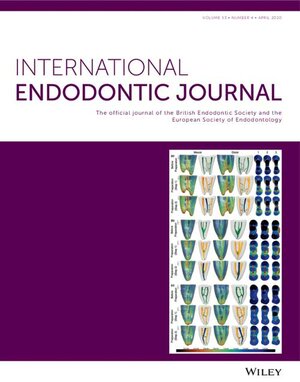Development of clobetasol-loaded biodegradable nanoparticles as an endodontic intracanal medicament
Abstract
Aim
The aim of current study is the development and optimization of biodegradable polymeric nanoparticles (NPs) to be used in the field of Endodontics as intracanal medication in cases of avulsed teeth with extended extra-oral time, utilizing PLGA polymers loaded with the anti-inflammatory drug clobetasol propionate (CP).
Methodology
CP-loaded nanoparticles (CP-NPs) were prepared using the solvent displacement method. CP release profile from CP-NPs was assessed for 48 h against free CP. Using extracted human teeth, the degree of infiltration inside the dentinal tubules was studied for both CP-NPs and CP. The anti-inflammatory capacity of CP-NPs was evaluated in vitro measuring their response and reaction against inflammatory cells, in particular against macrophages. The enzyme-linked immunosorbent assay (ELISA) was used to examine the cytokine release of IL-1β and TNF-α.
Results
Optimized CP-NPs displayed an average size below 200 nm and a monomodal population. Additionally, spherical morphology and non-aggregation of CP-NPs were confirmed by transmission electron microscopy. Interaction studies showed that CP was encapsulated inside the NPs and no covalent bonds were formed. Moreover, CP-NPs exhibited a prolonged and steady release with only 21% of the encapsulated CP released after 48 h. Using confocal laser scanning microscopy, it was observed that CP-NPs were able to display enhanced penetration into the dentinal tubules. Neither the release of TNF-α nor IL-1β increased in CP-NPs compared to the LPS control, displaying results similar and even less than the TCP after 48 h. Moreover, IL-1β release in LPS-stimulated cells, decreased when macrophages were treated with CP-NPs.
Conclusions
In the present work, CP-NPs were prepared, optimized and characterized displaying significant increase in the degree of infiltration inside the dentinal tubules against CP and were able to significantly reduce TNF-α release. Therefore, CP-NPs constitute a promising therapy for the treatment of avulsed teeth with extended extra-oral time.

 求助内容:
求助内容: 应助结果提醒方式:
应助结果提醒方式:


